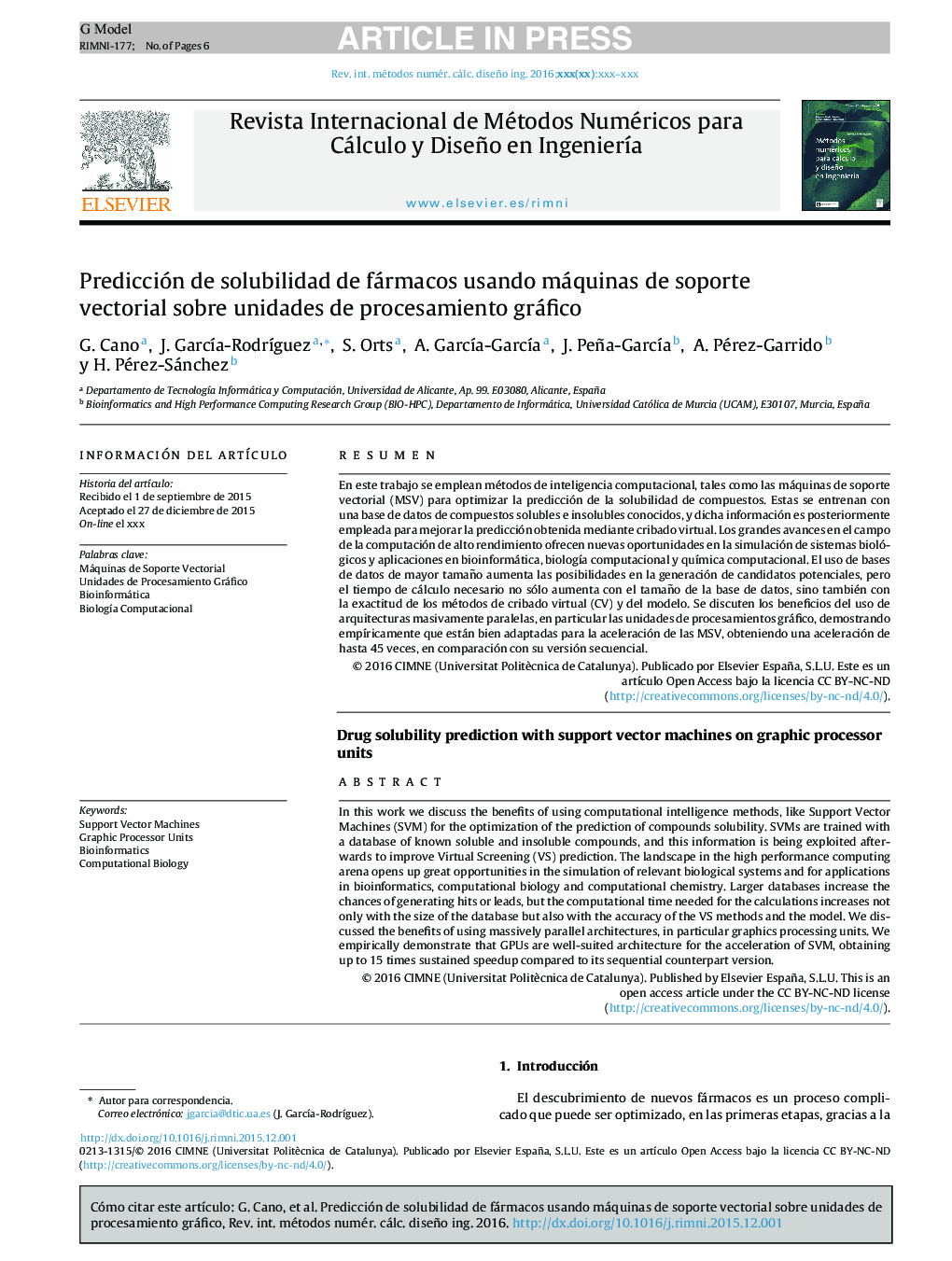| Article ID | Journal | Published Year | Pages | File Type |
|---|---|---|---|---|
| 8050789 | Revista Internacional de Métodos Numéricos para Cálculo y Diseño en Ingeniería | 2017 | 6 Pages |
Abstract
In this work we discuss the benefits of using computational intelligence methods, like Support Vector Machines (SVM) for the optimization of the prediction of compounds solubility. SVMs are trained with a database of known soluble and insoluble compounds, and this information is being exploited afterwards to improve Virtual Screening (VS) prediction. The landscape in the high performance computing arena opens up great opportunities in the simulation of relevant biological systems and for applications in bioinformatics, computational biology and computational chemistry. Larger databases increase the chances of generating hits or leads, but the computational time needed for the calculations increases not only with the size of the database but also with the accuracy of the VS methods and the model. We discussed the benefits of using massively parallel architectures, in particular graphics processing units. We empirically demonstrate that GPUs are well-suited architecture for the acceleration of SVM, obtaining up to 15 times sustained speedup compared to its sequential counterpart version.
Related Topics
Physical Sciences and Engineering
Engineering
Computational Mechanics
Authors
G. Cano, J. GarcÃa-RodrÃguez, S. Orts, A. GarcÃa-GarcÃa, J. Peña-GarcÃa, A. Pérez-Garrido, H. Pérez-Sánchez,
